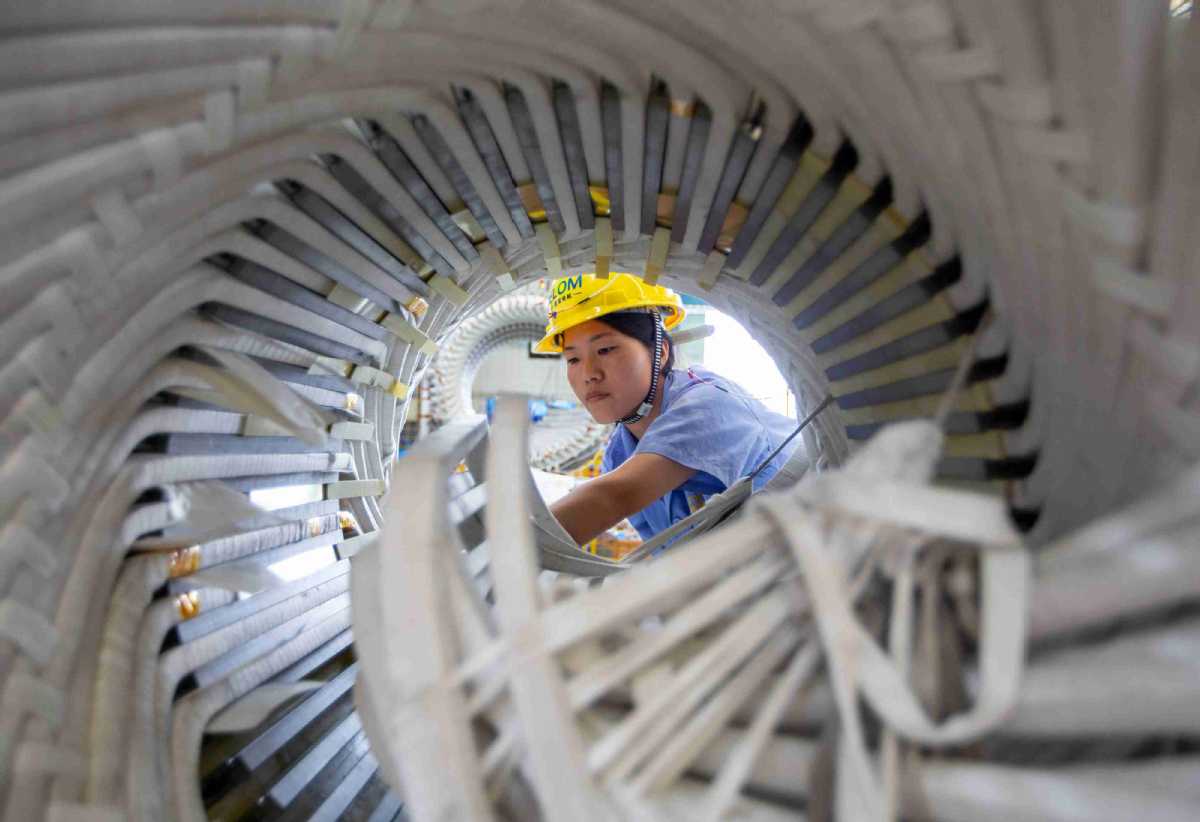Challenges galore, but trade firms tough it out


Since the beginning of this year, the Chinese authorities have been stepping up efforts to stabilize foreign trade growth and improve trade quality, they said.
The authorities have rolled out measures to promote new trade formats, smooth transportation and logistics, refine government and financial services, reduce enterprise costs and strengthen trade facilitation.
For instance, the Ministry of Commerce said the nation will innovate and optimize organization of online trade expos to help enterprises receive more orders. It will also encourage enterprises to communicate with clients through online channels and exhibit products at overseas offline expos.
At a recent news conference in Beijing, Li Xingqian, director-general of the ministry's foreign trade department, said the scale of China's foreign trade order outflow is manageable and its impact is limited.
With continuous upgrade of domestic industries and optimization of production factors, some Chinese enterprises have been relocating manufacturing capacities to overseas sites in the region, thus ensuring global division in labor, he said.
So, it is not right to interpret this phenomenon as a shift in export orders from China to markets of the Association of Southeast Asian Nations, said Zhao Wei, chief economist at Sinolink Securities.
The export structures of China and some member states of the ASEAN such as Thailand and Malaysia have a high degree of overlap. There is also complementarity in their exports of intermediate and capital goods like electrical and electronic equipment and parts, he said.
Li from the ministry said China will further promote the implementation of policies for enterprises to resume full production, provide facilitating services to help them solve problems in logistics and order acquisition, and guide relocation of industries to central, western and northeastern regions of China to optimize industrial layout.
Zhang Yan, founder of BeiAng Air Tech, which makes air purifiers and exports 70 percent of its annual output to 81 countries and regions from Suzhou, Jiangsu province, said government measures aimed at enabling foreign trade enterprises helped the company a lot, especially when it encountered challenges from inefficient logistics and labor shortage this year.
Specifically, measures facilitating development of cross-border e-commerce, simplified Customs procedures for business-to-business e-commerce exports, and the Regional Comprehensive Economic Partnership agreement, which took effect on Jan 1, have all helped trade firms such as BeiAng Air Tech a great deal, she said.
The company's first-half revenue grew by 90 percent year-on-year. Its annual revenue is expected to be around 500 million yuan, promising a stable profit amid various challenges.
Yet, Zhang said she expects some pressure in the second half. So, the company has been strengthening investments in research, design and development of new products, besides ramping up efforts to expand into new markets.
"Chinese products' quality has improved a lot over the years. But there are difficulties in bagging new orders due to external factors," she said, adding some enterprises have been streamlining processes and hiring fewer staff members to cope with the situation.
Zhang Jianping, head of the Center for Regional Economic Cooperation, which is part of the Chinese Academy of International Trade and Economic Cooperation, said Chinese enterprises should utilize opportunities arising from China's dual-circulation development pattern that takes the domestic market as the mainstay while letting domestic and foreign markets reinforce each other.
Firms focused on either product exports or imports are expected to better utilize supportive policy measures, to cope with external challenges and enhance their competitiveness, he said.



































